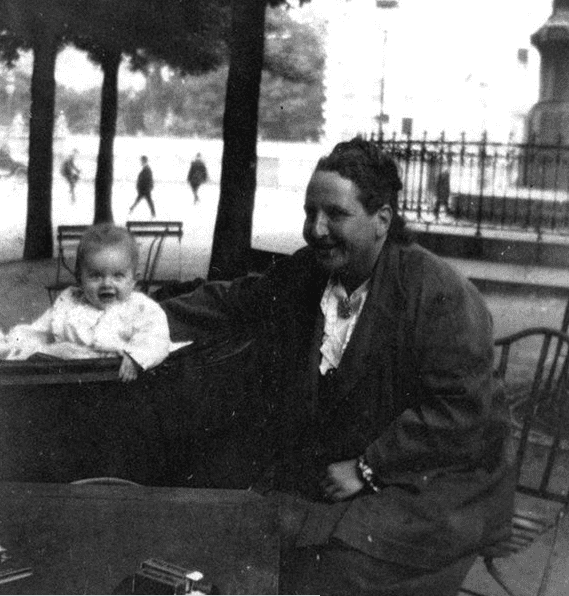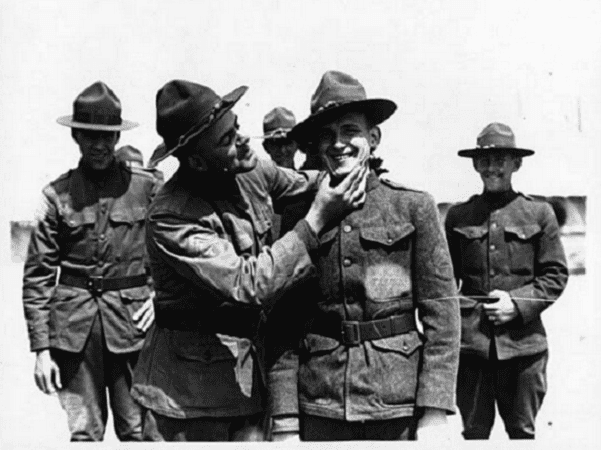When people refer to the “lost generation,” they’re either talking about a group of American writers living in Paris during the 1920s – or a whole population of people, born between 1883 and 1900, who reached adulthood during the time of World War I. So, who were the lost generation? The literary icons, or the rest of the adult population involved in the war?

The answer is both. It was a historical period that got its name from literary roots, and came to define an entire generation. In his 1990 book A War Imagined: The First World War and English Culture, Samuel Hynes wrote of the “disoriented, wandering, directionless” feeling this generation felt after the unfathomable horror of WWI; in short, they felt “lost.”
Living in a digital world, we now have the ability to access the past and discover how our ancestors fit into the context of history. Learning about the lost generation will help you decide if your ancestors were a part of this historical period, and how you can find out more about them and the times they lived in.
How Did They Come to Be Called the Lost Generation?
The term “lost generation” is credited to American writers Gertrude Stein and Ernest Hemingway – she coined it first and he made it widely known. According to Hemingway’s memoir A Moveable Feast, Stein had heard a French garage owner say to his young employee who was working slowly, “You are all a génération perdue.” When telling Hemingway this later, she added:
“That’s what you all are. All of you young people who served in the war. You are a lost generation… You have no respect for anything. You drink yourselves to death…”
This sentiment rang true for many adults at this time, even if they didn’t serve. The war affected every aspect of society and every one of its people, creating a new mindset for the young generation.
The Lost Generation & WWI
The word “lost” is relevant to this generation in two ways. Millions of them were killed in the war. For millions more, despite physically surviving WWI, they still felt they lost so much by being involved (wasting their youth and seeing death all around them), making them feel directionless, pessimistic, and averse toward traditional values and roles.
In both a literal and metaphorical sense, they were a generation defined by loss, suffering physical and emotional wounds that led them to lead frivolous, reckless lives.
Many men who served in the war disliked society’s expectation of being emotionally muted and blindly courageous at all times, when in reality most of them had lost friends, were wounded themselves, and watched others struggle as their towns and livelihoods were destroyed.
Frustrated with the world around them, alcohol became a coping mechanism. In the trenches, troops were given alcohol by their officers, and their wives at home began drinking more too, often drinking more than the men at pubs, according to Military History. Heavy drinking became a defining characteristic of the lost generation, for both men and women.
Other Distinguishing Qualities of the Lost Generation
Men and women who were coming of age during or immediately after World War I made up the generation, whether or not they were writers and knew such a term existed. The defining attributes remained the same for everyone who fought or was affected by the war.
Experiencing the horrors of war caused young adults to be disillusioned by their former belief systems and American patriotism.
Despite their newfound lack of faith in society, and appearing to be living aimlessly, there are some elements of the lost generation that are somewhat contradictory. They were directionless, yet they wanted to find the meaning of life; they outwardly cared about very little, but they were redefining social norms in their head.
To paint a fuller picture, here are some more characteristics of the lost generation:
- Rejection of traditional roles. After seeing the hypermasculinity of the war and the differing roles of men and women in society, many young men rejected traditional gender roles and realized they’d devalued the intelligence and importance of women.
- Living in excess. People enjoyed spending lots of money on alcohol and good food (because of the lack of quality food during wartime). There was a desire to live a life without additional stress, and to make enough money to be self-indulgent: eating good food, drinking a lot, and partying lavishly. Sounds like Gatsby.
- Questioning the “American Dream.” The mentality deeply ingrained in American culture is that anyone can achieve any goal they have, and that everyone has equal opportunity. But after witnessing violence and death on a massive scale, going back to normal life seemed like an impossible task. The idea that hard work leads to success isn’t true in times of war. On the contrary, the war taught people to go after their goals using any means necessary if they hoped to achieve them – and even so, they may never be reached. That disconnect tarnished the American Dream for the entire generation.
- Wandering spirit. Rethinking the structures that hold together American society caused many people to drift to other countries and provinces, mainly in Europe, and more specifically, Paris, France. They believed the attitude of the United States was preventing them from realizing the meaning of life. This doesn’t imply that they were actively searching for life’s meaning in Europe, but that they hoped its purpose would make itself evident if they left the land that caused them to question everything in the first place.
Finding the Lost Generation
If you think you have family members that were a part of the lost generation, you can learn about their lives using the census records from GenealogyBank. With billions of online records, featuring newspapers, obituaries, historical books, government records including the federal census, and the Social Security Death Index, you can explore your ancestry with a leading genealogical resource.
Using GenealogyBank’s extensive archive of documents, you’ll be able to uncover family history that otherwise may have been lost.
Sources:
- Ernest Hemingway: A Moveable Feast
- Military History Matters: War Culture – Military Drinking
